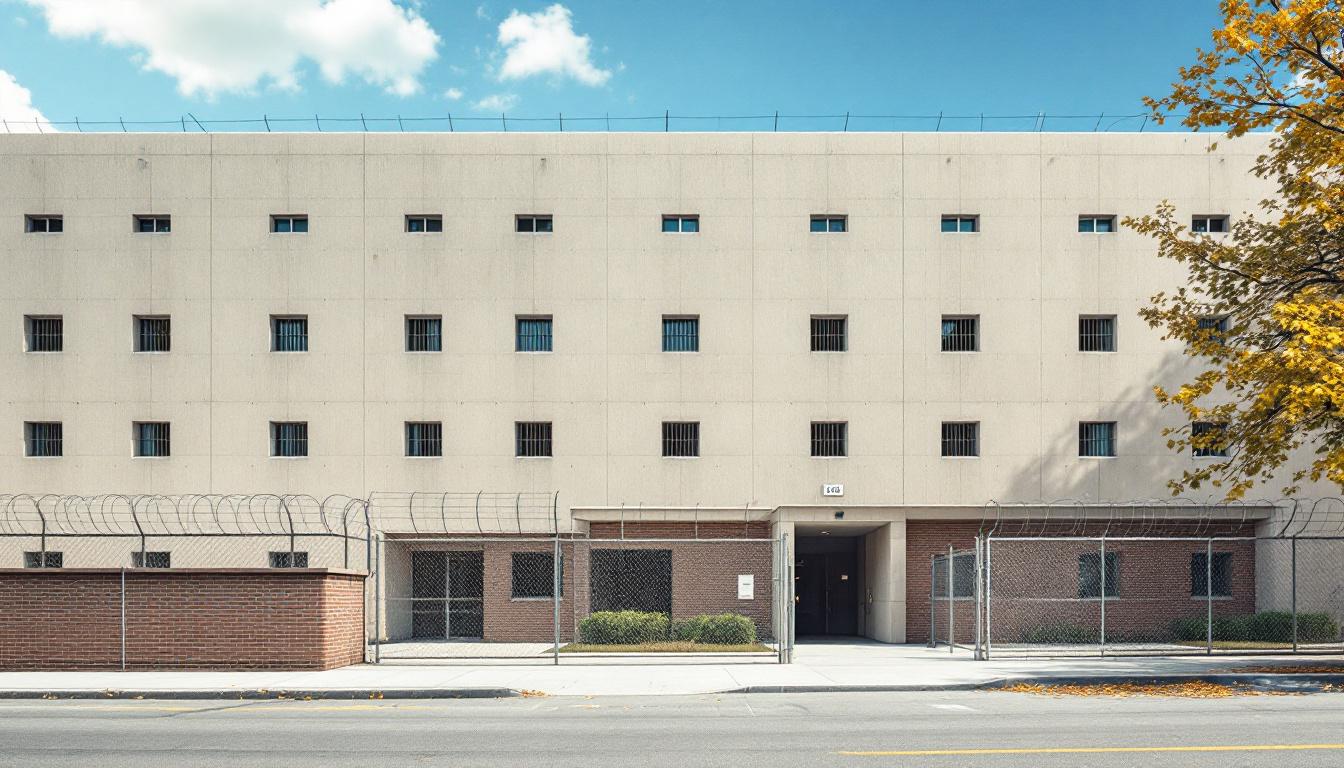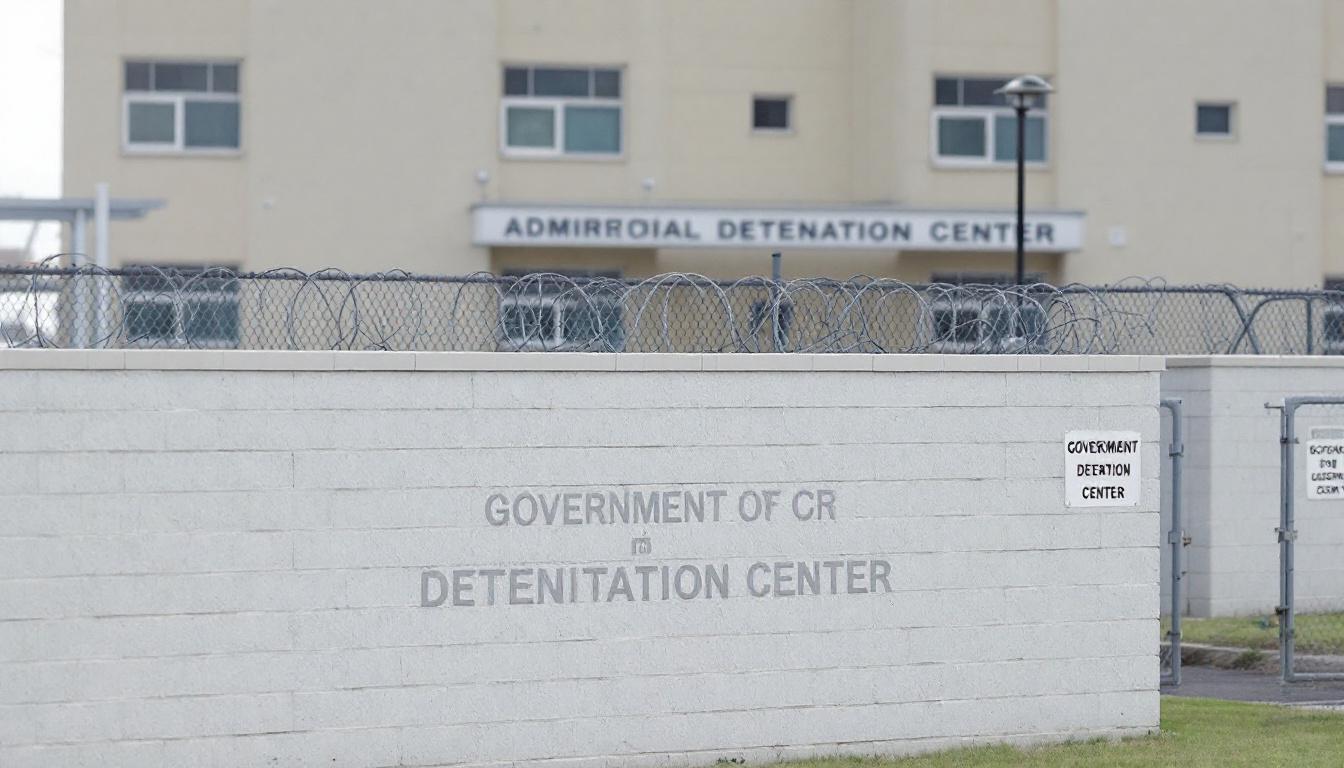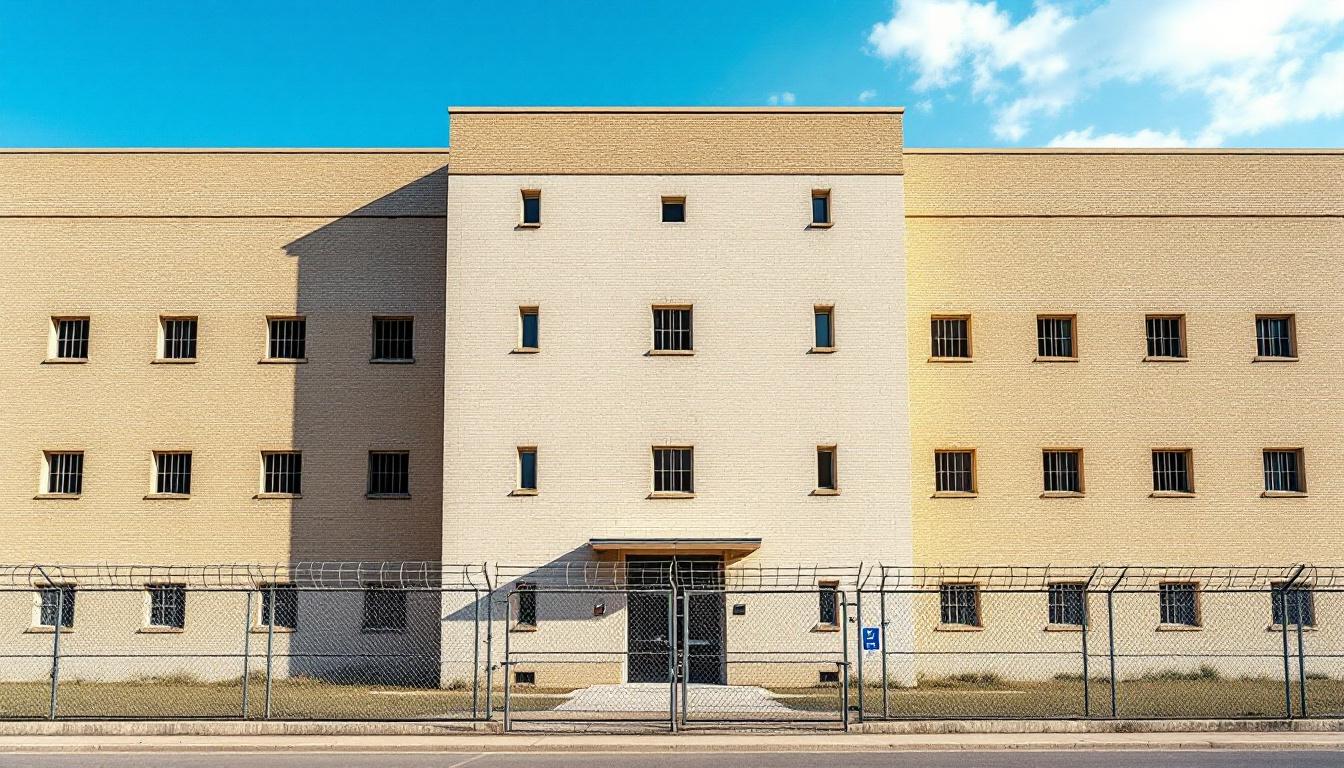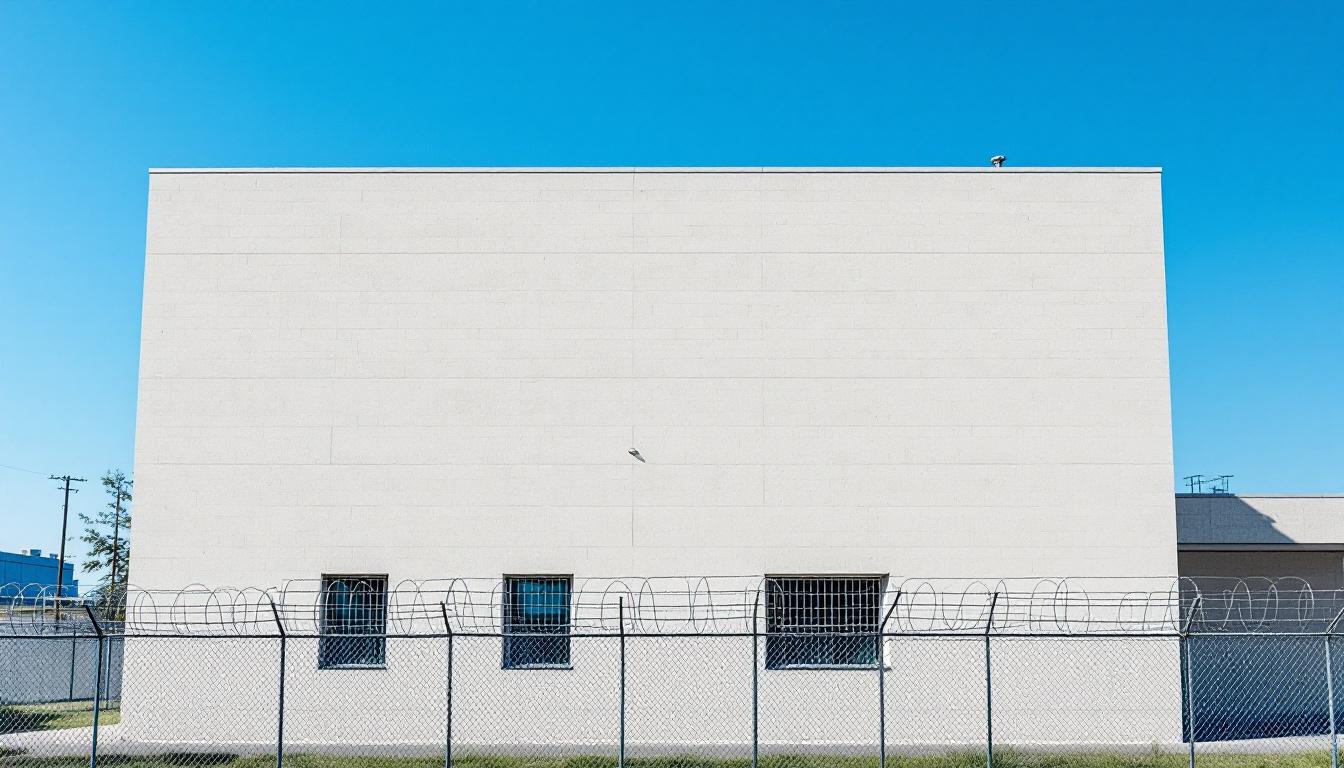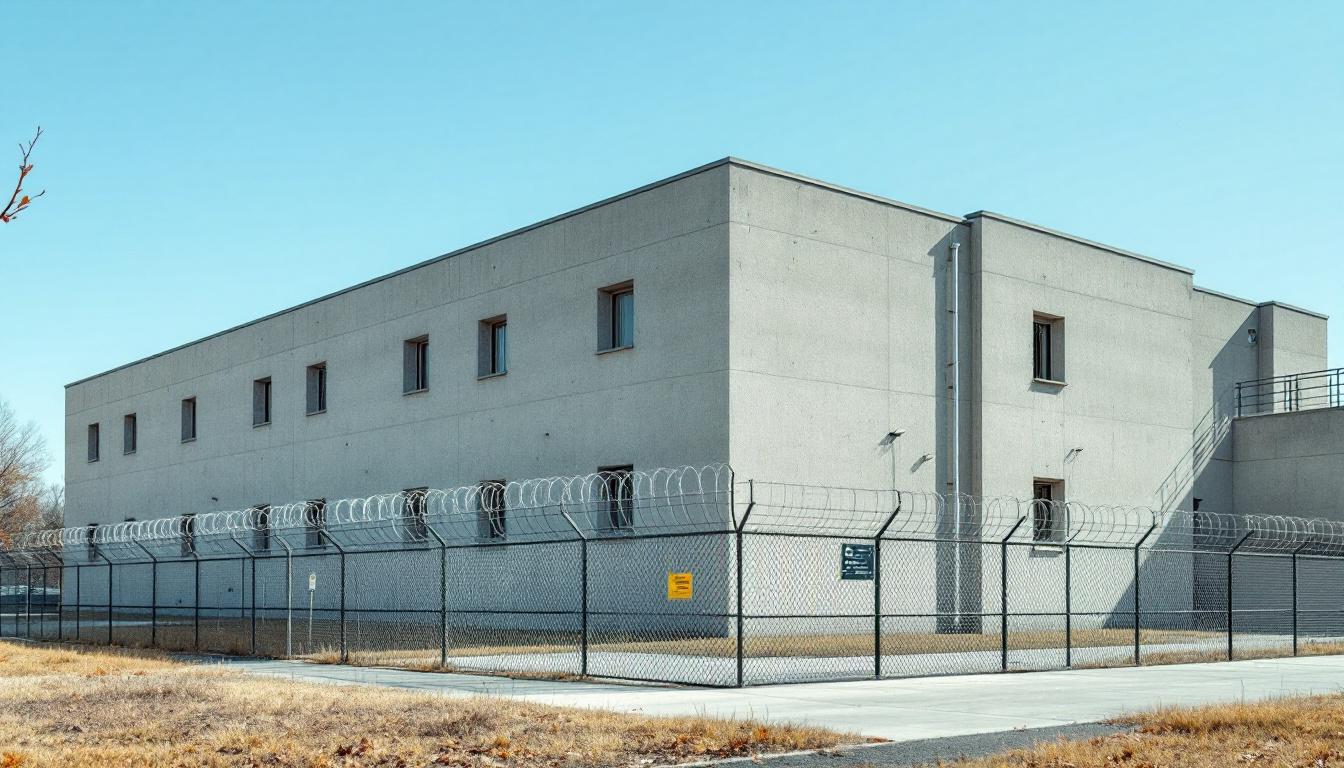
Quick Navigation
How to contact an inmate at Davis County Sheriff's Office
This comprehensive guide will walk you through how to connect with an inmate at Davis County Sheriff's Office. Follow the steps below to find an inmate and send letters and photos:
- Search for the inmate using our search tool below
- Create your account or log in to Penmate
- Write your message (up to 6,000 characters)
- Send instantly - inmates receive printed copies daily
Find an Inmate
Search for an inmate to start communicating today
Tip: You can search by first name, last name, or inmate ID number
To contact a person at Davis County Sheriff's Office start by searching for the person on the official facility website. Perform a search by following these steps:
- Step 1: Enter their first name and last name into the search form and click "Search"
- Step 2: Locate their inmate record
- Step 3: Write down their Inmate ID and any housing information provided
Important! Be sure to enter the person's full name. Nicknames should not be used.
How to Send Messages to Inmates

You can use your phone or computer to send emails, letters, and photos to an inmate. Messages are sent electronically to inmate tablets or kiosks at the facility. If you would like to send a message, start by searching for an inmate at Davis County Sheriff's Office.
Sending Photos and Postcards

A great way to send love and support to a loved one at Davis County Sheriff's Office is to send photos and postcards. It only takes a few minutes to send photos from your phone and it makes a huge difference. You can also mail postcards with words of support and inspiration, or design your own postcard for special moments like birthdays and holidays.
Important! Be sure not to send any explicit photos or they may not be approved by the facility. You can also use a photo printing app like Penmate to make sure your photos are printed at the correct size (4x6 or 3x5) and are mailed according to the rules and regulations of Davis County Sheriff's Office.
Frequently asked questions about Davis County Sheriff's Office
-
How long does it take to deliver a message?
If you're sending an email message your letter is usually delivered within 24-48 hours. For messages sent via mail you should expect delivery within 3-7 days. All messages will need be approved by Davis County Sheriff's Office.
-
How much does it cost to send a message to Davis County Sheriff's Office?
You can send a message free using your phone or mail a message via USPS for the price of a $0.60 stamp and envelope. You can also purchase credits or e-stamps from services starting at $1.99.
-
What services can I use to contact an inmate at Davis County Sheriff's Office?
Penmate
You can use Penmate to send letters and photos to an inmate from your phone. It's an easy way to stay in touch during your loved one's incarceration. Use the inmate locator to find an inmate's location and contact information, then you can send messages within a few minutes.
Securus messaging
Securus may be another option for communicating with an inmate at Davis County Sheriff's Office. You can create a friends and family account and purchase credits to send messages. All messages will be reviewed and must be approved by the facility.
JPay
Some county jails and state prisons may support sending messages with JPay. You must register an account with the system, find your loved one, and purchase stamps to send messages. For some locations you can also attach photos.
Smart Jail Mail
You may also check if Smart Jail Mail is available at Davis County Sheriff's Office. Smart Jail Mail is operated by Smart Communications and has contracted with some state and county jails. After purchasing credits, your messages and photos are sent to the facility, printed out, and then handed out to your loved one.
-
What is the mailing address of Davis County Sheriff's Office?
Mailing address:
Davis County Sheriff's Office
800 W State St
Farmington, UT 84025
Phone: (801) 451-4100Business hours:
- Monday: Open 24 hours
- Tuesday: Open 24 hours
- Wednesday: Open 24 hours
- Thursday: Open 24 hours
- Friday: Open 24 hours
- Saturday: Open 24 hours
- Sunday: Open 24 hours
-
What are the visiting hours at Davis County Sheriff's Office?
Visiting hours at Davis County Sheriff's Office vary by housing unit and security level. Generally, visits are scheduled on weekends and holidays, with some facilities offering weekday visits. Contact the facility directly at (801) 451-4100 or check their website for the current visiting schedule. Visits typically last 30-60 minutes and must be scheduled in advance.
-
What items are prohibited when sending mail to Davis County Sheriff's Office?
Prohibited items typically include: cash, personal checks, stamps, stickers, glitter, glue, tape, staples, paperclips, polaroid photos, musical or blank greeting cards, hardcover books, magazines with staples, and any items containing metal or electronics. Only send letters on plain white paper with blue or black ink. Photos must be printed on regular photo paper (no Polaroids). Always check with Davis County Sheriff's Office for their specific mail policies.
-
How do I send money to an inmate at Davis County Sheriff's Office?
You can send money to an inmate at Davis County Sheriff's Office through several methods: 1) Online using JPay, Access Corrections, or the facility's approved vendor, 2) Money orders mailed directly to the facility with the inmate's name and ID number, 3) Kiosks located in the facility lobby, or 4) Over the phone using a credit or debit card. Fees vary by method, typically ranging from $2.95 to $11.95 per transaction.
-
Can I schedule a video visit with an inmate at Davis County Sheriff's Office?
Many facilities now offer video visitation as an alternative to in-person visits. At Davis County Sheriff's Office, video visits may be available through services like Penmate, Securus Video Connect, GTL, or ICSolutions. Video visits typically cost $10-20 for 20-30 minutes and must be scheduled in advance. You'll need a computer or smartphone with a camera and reliable internet connection. Contact the facility for their specific video visitation policies and approved vendors.
-
What identification do I need to visit an inmate at Davis County Sheriff's Office?
All visitors must present valid government-issued photo identification such as a driver's license, state ID, passport, or military ID. Minors must be accompanied by a parent or legal guardian who can provide the minor's birth certificate. Some facilities require visitors to be on the inmate's approved visitation list, which may require a background check. Contact Davis County Sheriff's Office for specific ID requirements and visitor approval procedures.
-
How can I find out an inmate's release date?
To find an inmate's release date at Davis County Sheriff's Office, you can: 1) Use the online inmate search tool if available, 2) Call the facility's records department, 3) Contact the inmate's case manager or counselor, or 4) Have the inmate provide this information during a call or visit. For privacy reasons, some facilities only release this information to immediate family members.
Facility Overview
Contact Information
Davis County Sheriff's Office800 W State St
Farmington, UT 84025
Phone: (801) 451-4100
Official Website

About Davis County Sheriff's Office
Within the mountain communities of northern Utah, comprehensive support services form the foundation of Davis County Jail’s approach to serving individuals in Farmington. The facility typically provides essential medical care, mental health resources, and educational opportunities designed to address the diverse needs of those in custody. These services often include substance abuse counseling, vocational training programs, and reentry planning assistance that may help individuals prepare for their return to the community.
As a key component in Utah’s broader correctional network, this county-level facility generally handles pre-trial detention, sentenced individuals serving shorter terms, and those awaiting transfer to state institutions. The jail’s role within the regional system often involves coordinating with local courts, law enforcement agencies, and community organizations throughout Davis County. Located in Farmington, the facility serves communities across the Wasatch Front, where the intersection of urban growth and mountain geography has historically shaped the area’s development and public safety needs.
The facility’s operations typically reflect Utah’s emphasis on rehabilitation alongside secure custody, with programs that may focus on education, job skills development, and personal accountability. Staff generally work to maintain connections between individuals and their families while providing structured environments that encourage positive behavioral changes. Through these efforts, Davis County Jail often serves as more than a detention center, functioning as a bridge between the justice system and the community reintegration process that supports long-term public safety goals.
Programs & Services
The breadth of developmental opportunities available to individuals demonstrates a multifaceted approach to personal growth and rehabilitation. Rather than limiting focus to singular interventions, the facility typically emphasizes comprehensive programming that addresses educational deficits, vocational skill gaps, and underlying behavioral challenges through integrated service delivery. This holistic philosophy recognizes that meaningful change often requires multiple pathways of engagement, allowing individuals to participate in various opportunities that complement and reinforce one another throughout their period of incarceration.
Educational advancement forms a cornerstone of available programming, with opportunities often including basic literacy instruction, GED preparation, and high school completion courses designed to address fundamental academic needs. Moreover, individuals may access college correspondence courses that enable them to pursue higher education credits while maintaining their commitment to personal development. Vocational training opportunities typically complement these academic pursuits by providing hands-on instruction in marketable trades and technical skills, preparing participants for employment opportunities upon release while fostering practical competencies that extend beyond traditional classroom learning.
Therapeutic communities represent another dimension of comprehensive programming, offering structured environments where individuals can address substance abuse issues, mental health concerns, and behavioral patterns within supportive peer settings. Moreover, distance learning opportunities may provide additional flexibility for those seeking to continue their education through remote coursework and online platforms. These support services often integrate with other programming elements, creating a network of interventions that addresses the complex factors contributing to criminal behavior while promoting sustainable personal transformation through evidence-based therapeutic approaches.
Daily Life & Visitation

The rhythmic sound of meal trays being distributed often marks the beginning of each new day for individuals housed within the Davis County facility, as structured routines help maintain order and provide predictability in an otherwise uncertain environment. At present, the daily schedule typically revolves around established meal times, count procedures, and various programming opportunities that actively engage residents throughout their stay. The facility generally operates on a schedule that balances security requirements with opportunities for personal development, ensuring that individuals can maintain some sense of normalcy while addressing the circumstances that brought them to the facility.
Living accommodations within the facility typically consist of housing units designed to accommodate varying security levels and individual needs, with most individuals sharing cells or dormitory-style spaces that include basic amenities such as beds, storage areas, and restroom facilities. Moreover, the facility generally provides access to common areas where individuals can participate in recreational activities, watch television, or engage in social interaction during designated periods. Personal property allowances usually include essential items and a limited selection of approved personal belongings, while commissary services typically offer additional food items, hygiene products, and other necessities that can be purchased to supplement basic provisions.
Programming opportunities often offer structure through educational classes, vocational training, and counseling services that may help individuals develop skills and address underlying issues during their incarceration. Whereas recreational time generally includes access to exercise areas, library services, and organized activities, visitation policies typically allow for regular contact with family members and friends through scheduled in-person visits, phone calls, and correspondence. Work assignments within the facility usually provide individuals with opportunities to contribute to daily operations while earning modest compensation, and these positions may include kitchen duties, maintenance tasks, or clerical work that helps maintain facility functions while offering valuable experience.
Ready to Connect?
Start communicating with your loved one today
Search for an Inmate


